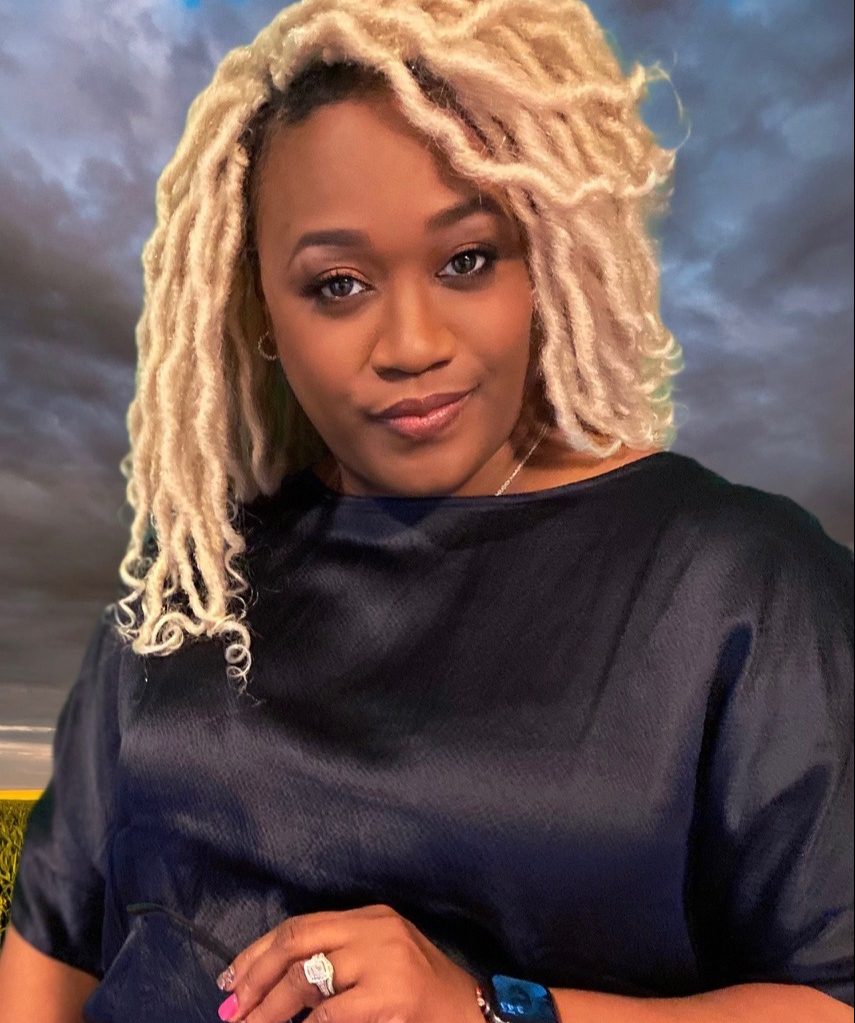Kimberly Horton was recently named interim president and CEO of The Blues Foundation after the departure of former president and CEO Judith Black.
Horton, originally from Jackson, Mississippi, has served as a manager and agent working with artists like Billy Price, Dexter Allen, Lady A, and more.
The Memphis Flyer spoke with Horton as she prepares to move to Memphis to fill this role. — Kailynn Johnson
Memphis Flyer: Tell us a little bit about yourself.
Horton: I’m just me! I’m a native of Jackson, Mississippi. I’m a mom of two — I have a 26-year-old daughter, and a 15-year-old son. I have been working in the music industry since 2008. My daughter is going to be taking over my company, Heathrow Muzik Box, LLC, since I’ve been appointed interim president and CEO of The Blues Foundation.
I have a master’s from Belhaven [University] in management and a master’s from Jackson State University in public health, and I’m looking forward to moving to Memphis.
What do you think of the state of blues in Memphis right now? Do you think it’s going strong? Is it weak?
That’s kind of hard to answer, because I think that the blues is always going to be going strong. It’s just having people in place to have it out on Front Street. I think Memphis is definitely a place where the blues, in my opinion, will always be going strong.
Do you think locals still love the blues? What about tourists?
The blues is a part of the culture in Memphis. Not just in Memphis, it’s part of the culture. Especially for the African American race. You know Willie Dixon said it best, “Blues is the root, everything else is the fruit.” So, all of the music that we listen to, whether it’s rap, gospel, R&B, all of that has something to do with the blues in some shape, form, or fashion. So, definitely locally, nationally, internationally, yes, it’s going.
A lot of your knowledge of blues comes from first-hand accounts. Do you think this makes your interest in blues a little more personal?
Oh, yes, definitely. Being able to touch, and listen to, and be in contact with — especially coming up in the South, of course — the blues was the real deal. I didn’t know what I was singing at the age of six. “The Thrill Is Gone” and “Sweet Sixteen,” those were two of B.B. King’s songs that my dad would play quite often. At the age of six, to be able to actually see him, and meet him was like, “oh my gosh.” Most little kids were ready to see The Jackson 5, I was ready to see B.B. King. So yes, definitely. Even being in close contact with living legends of today as well, I love it. It’s where I’m most comfortable.
So, what do you think about the future of blues in Memphis?
It’s going to keep going. We’re going to make sure that young people know it’s there, and how and why they got the music that they’re listening to, and hopefully bring interest to the younger generation. Growing and thriving.
How do you plan on bringing a new generation of blues in, while also maintaining its already rich history?
The educating part of the blues has dropped off a little bit. [We will be] getting back into blues, and bringing back blues in the schools, exposing the younger generation to exactly what it is, where it came from, how we got where we are.
[We’ll get] the school enrichment programs back in place and do outreach into the community to make sure young folks know the blues is where you got your rap from. The blues is where you got your everything from. That’s going to be one of the major plans.
Hopefully, being able to partner with the Recording Academy to do some work with Grammy U, which reaches out to the university capacity for younger folks. Everybody thinks that the blues is sad and drowning, but it’s not. The blues is actually life. So, just getting them re-exposed to where it came from.
Piggybacking off of that, you said you’re looking to work with a new generation of blues artists as well, and bring more diversity in. Why do you think diversity is so important in blues?
I’m saying diversity not just in color but I’m talking about gender as well. We have some wonderful female artists that are blues artists, and a lot of the time they get overlooked because they don’t play a harmonica or a guitar, but they actually sing the blues. So, bringing diversity in that aspect, as well as making sure that our people — my people — know that we still have an obligation to the heritage of the blues.
You kind of touched on it just then, and a little earlier with some of the educational outreach programs that you all plan to do. Are there any other changes that you plan to make at the foundation? Even as interim CEO?
There are, but I’m not at liberty to speak about those at the moment. I want to wait until I actually get into the office full-time. My main change is to get the confidence of the artists back. They’ve lost confidence in the foundation, so I want to gain the artists’ confidence back, to make sure they know that we’re there, we’re here, we’re thriving, and we’re intending on making sure that the awareness is available.
So, what makes you excited about stepping into this role? What are you most excited about?
I’m most excited about working in an area that I love, that I have a true passion about — being able to come in and actually make some positive changes for the foundation. Just getting everything back to the basics — getting back to what it used to be, and better.
